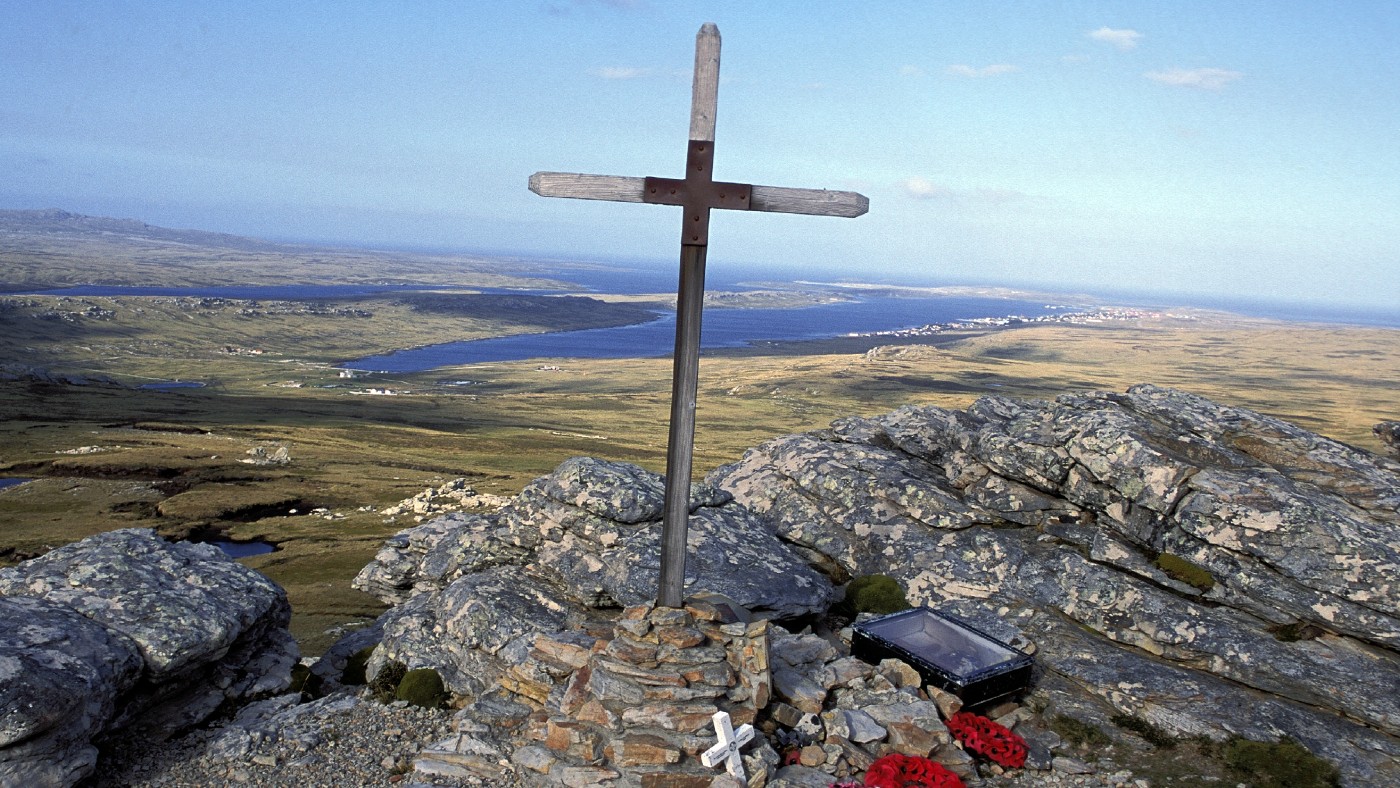Trip of the week: memories of war in the Falkland Islands
For a British tourist of a certain age, a visit to the battle sites is ‘spine-tingling’

A free daily email with the biggest news stories of the day – and the best features from TheWeek.com
You are now subscribed
Your newsletter sign-up was successful
With a landmass almost as big as Northern Ireland’s and a population of just 3,500, the Falkland Islands have an “otherworldly” natural beauty that has attracted a growing number of visitors. But this spring, some Britons have another reason to go, said Marcel Theroux in The Daily Telegraph. It is the 40th anniversary of the Falklands War, which began on 2 April 1982 and ended six weeks later, on 14 June. From 4 May, hundreds of veterans are due to fly to the islands to attend remembrance ceremonies in the capital, Stanley.
The war still “looms large in every aspect of Falklands life”. It can be “very sobering” to hear first-hand from islanders about their memories of the fighting; and for a British tourist of a certain age, a visit to the battle sites is “spine-tingling”. You come across once-familiar names (Mount Harriet, Tumbledown, Goose Green), as well as rusting chunks of matériel (“burned out helicopters, old Argentine field kitchens, downed fighter planes”) that make the conflict seem “eerily recent”.
But for islanders, the war had some positive effects. The Foreign Office largely neglected them until 1982, and life was poor and tough for most. Since then, there have been “huge material improvements”, with new fishing rights and a growth in tourism, largely from cruise ships.
The Week
Escape your echo chamber. Get the facts behind the news, plus analysis from multiple perspectives.

Sign up for The Week's Free Newsletters
From our morning news briefing to a weekly Good News Newsletter, get the best of The Week delivered directly to your inbox.
From our morning news briefing to a weekly Good News Newsletter, get the best of The Week delivered directly to your inbox.
Founded in 1845, Stanley retains its quaint Victorian heart, but has expanded greatly in recent years. It has acquired some “reliably good” restaurants (the local toothfish is “delicious”), a great microbrewery and a “fantastic” artisanal gin distillery, Darwin’s Botanicals. And transport links within the islands are much improved.
Go to revel in their limitless space and quiet, their “intense southern hemisphere sunshine”, and their astonishing sub-Antarctic wildlife, which includes elephant seals, sea lions and six types of penguin.
Specialist tour operators include Journey Latin America (journeylatinamerica.co.uk) and Rainbow Tours (rainbowtours.co.uk).
A free daily email with the biggest news stories of the day – and the best features from TheWeek.com
-
 Kia EV4: a ‘terrifically comfy’ electric car
Kia EV4: a ‘terrifically comfy’ electric carThe Week Recommends The family-friendly vehicle has ‘plush seats’ and generous space
-
 Bonfire of the Murdochs: an ‘utterly gripping’ book
Bonfire of the Murdochs: an ‘utterly gripping’ bookThe Week Recommends Gabriel Sherman examines Rupert Murdoch’s ‘war of succession’ over his media empire
-
 Gwen John: Strange Beauties – a ‘superb’ retrospective
Gwen John: Strange Beauties – a ‘superb’ retrospectiveThe Week Recommends ‘Daunting’ show at the National Museum Cardiff plunges viewers into the Welsh artist’s ‘spiritual, austere existence’
-
 Bad Bunny’s Super Bowl: A win for unity
Bad Bunny’s Super Bowl: A win for unityFeature The global superstar's halftime show was a celebration for everyone to enjoy
-
 Book reviews: ‘Bonfire of the Murdochs’ and ‘The Typewriter and the Guillotine’
Book reviews: ‘Bonfire of the Murdochs’ and ‘The Typewriter and the Guillotine’Feature New insights into the Murdoch family’s turmoil and a renowned journalist’s time in pre-World War II Paris
-
 6 exquisite homes with vast acreage
6 exquisite homes with vast acreageFeature Featuring an off-the-grid contemporary home in New Mexico and lakefront farmhouse in Massachusetts
-
 Film reviews: ‘Wuthering Heights,’ ‘Good Luck, Have Fun, Don’t Die,’ and ‘Sirat’
Film reviews: ‘Wuthering Heights,’ ‘Good Luck, Have Fun, Don’t Die,’ and ‘Sirat’Feature An inconvenient love torments a would-be couple, a gonzo time traveler seeks to save humanity from AI, and a father’s desperate search goes deeply sideways
-
 A thrilling foodie city in northern Japan
A thrilling foodie city in northern JapanThe Week Recommends The food scene here is ‘unspoilt’ and ‘fun’


